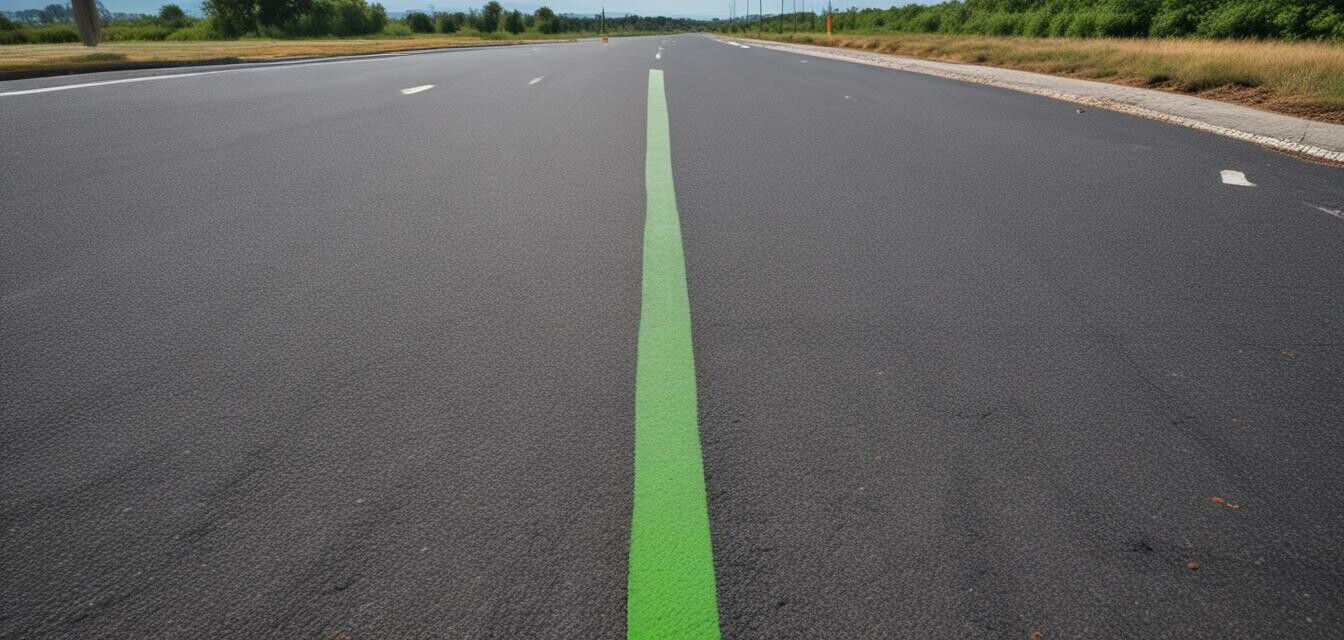
The Growing Demand for Eco-Friendly Asphalt Solutions
Key Takeaways
- The shift towards eco-friendly asphalt solutions is driven by environmental concerns and regulatory changes.
- Eco-friendly asphalt can reduce pollution and enhance sustainability in construction.
- Various innovative products and techniques are now available to assist contractors and DIY enthusiasts in sustainable paving.
In recent years, the asphalt paving industry has witnessed a significant shift towards eco-friendly solutions. As environmental awareness grows among consumers and contractors alike, the demand for sustainable paving materials and practices has surged. This article delves into the increasing popularity of eco-friendly asphalt options, exploring their benefits and the various products available on the market.
Why the demand for eco-friendly asphalt is increasing
The growing concern over environmental issues such as pollution and climate change has compelled industries to explore more sustainable practices. Below are some key drivers behind the increasing demand for eco-friendly asphalt solutions:
- Regulatory Changes: Governments are implementing stricter regulations and policies that favor sustainable construction practices.
- Public Awareness: There is a heightened public awareness regarding environmental sustainability, pushing consumers to opt for greener solutions.
- Cost-Effectiveness: Long-term savings from using eco-friendly materials often outweigh initial costs, appealing to both businesses and consumers.
Benefits of eco-friendly asphalt solutions
There are numerous advantages to adopting eco-friendly asphalt options. Here are some notable benefits:
- Reduced Environmental Impact: Eco-friendly asphalt is designed to produce fewer emissions and reduce the carbon footprint associated with traditional paving methods.
- Enhanced Durability: Many eco-friendly solutions result in stronger roads that can withstand heavier traffic loads without degradation over time.
- Improved Heat Resistance: Certain eco-friendly asphalt mixes can help mitigate the urban heat island effect by reflecting more sunlight.
- Recyclability: Eco-friendly asphalt often incorporates recycled materials, making it a more sustainable choice.
Types of eco-friendly asphalt solutions
Various types of eco-friendly asphalt solutions are making waves in the industry today. Here’s a look at some popular options:
| Type of Eco-Friendly Asphalt | Description |
|---|---|
| Recycled Asphalt Pavement (RAP) | Utilizes old asphalt collected from previously paved roads, reducing waste and conserving natural resources. |
| Warm Mix Asphalt (WMA) | Produced at lower temperatures than traditional hot mix asphalt, reducing energy consumption and emissions. |
| Porous Asphalt | Allows water to drain through the surface, reducing runoff and promoting groundwater recharge. |
| Plant-Produced Green Asphalt | Involves the use of sustainable materials and processes in manufacturing asphalt. |
Popular eco-friendly asphalt products
Several manufacturers are leading the way in producing eco-friendly asphalt products, which include:
- Innovative asphalt mixes that incorporate recycled and sustainable materials.
- Environmentally friendly sealants that enhance durability while minimizing toxic emissions.
- Specialized paving tools designed for efficiency and reduced environmental impact.
Challenges in adopting eco-friendly asphalt solutions
While the advantages are clear, there are some challenges associated with transitioning to eco-friendly asphalt options:
- Initial Costs: The upfront investment can be higher for certain eco-friendly materials, which may deter some contractors.
- Knowledge Gap: Not all contractors are well-versed in eco-friendly paving techniques, creating a learning curve.
- Material Availability: In some regions, access to eco-friendly materials may be limited, impacting project feasibility.
The future of eco-friendly asphalt solutions
Looking ahead, the trend towards eco-friendly asphalt solutions is expected to grow even stronger. As technology advances, more efficient materials and practices will arise, further enhancing the sustainability of asphalt paving. Factors that will influence this growth include:
- Continued investment in research and development to improve product efficiency.
- Increased collaboration between governments and manufacturers to encourage sustainable practices.
- A greater number of education and training programs aimed at equipping contractors with knowledge about eco-friendly paving techniques.
Tips for embracing eco-friendly asphalt solutions
- Stay informed about the latest developments in eco-friendly materials and technologies.
- Consider investing in training for your team to enhance their understanding of eco-friendly practices.
- Engage with suppliers who prioritize sustainability in their products.
Pros
- Reduces environmental impact.
- Increases durability of roads.
- Potential for long-term cost savings.
Cons
- Higher initial costs.
- Limited availability of materials in some regions.
- Requires additional training for contractors.
Conclusion
The demand for eco-friendly asphalt solutions is not only a trend; it represents a critical shift in the industry towards more sustainable practices. By adopting these solutions, contractors and property owners can contribute to a greener planet while enjoying the numerous benefits that eco-friendly asphalt offers. Whether you are a professional contractor or a DIY enthusiast, integrating these sustainable materials into your asphalt projects can pave the way for a brighter, more eco-friendly future.

